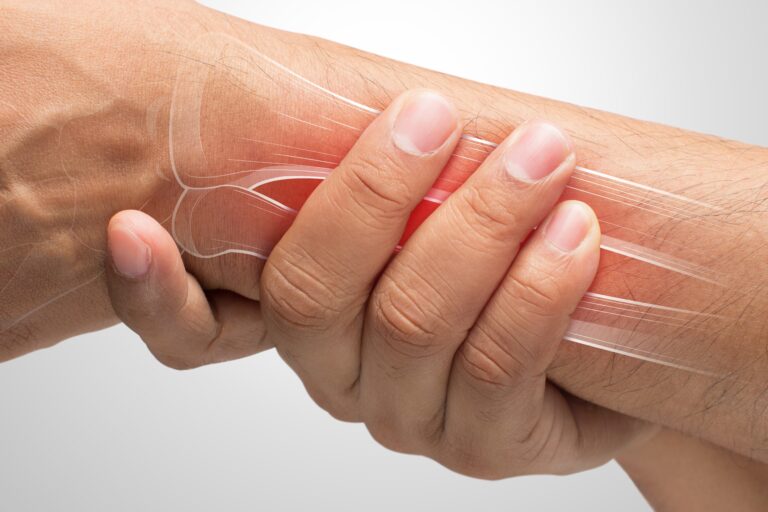Smoking is a significant risk factor for a wide range of health problems, including orthopedic issues. Orthopedic conditions affect the musculoskeletal system, including the bones, joints, muscles, and connective tissues. Smoking can affect the healing process of orthopedic injuries, delay recovery, and increase the risk of complications. In this article, we will explore the impact of smoking on orthopedic health and recovery.
EFFECTS OF SMOKING ON ORTHOPEDIC HEALTH
Smoking can affect orthopedic health in several ways. Here are some of the effects:
Reduced Bone Density
Smoking can decrease bone density, making bones weaker and more prone to fractures. Low bone density is a significant risk factor for osteoporosis, a condition characterized by weak and brittle bones. Individuals with osteoporosis are at an increased risk of fractures, particularly hip, spine, and wrist fractures.
Delayed Healing
Smoking can increase the risk of complications following orthopedic surgeries, such as joint replacement surgery. Complications may include infections, blood clots, and delayed wound healing. Smoking can also increase the risk of implant failure and the need for revision surgery.
Increased Risk of Complications
Smoking can also delay the healing process of orthopedic injuries, such as fractures and soft tissue injuries. Nicotine and other chemicals in cigarettes can interfere with the body’s natural healing mechanisms, impair blood flow, and reduce oxygen levels in the blood. This can slow down the delivery of nutrients and oxygen to the injured area, delaying the healing process.
Impaired Immune Function
Smoking can impair the immune system’s ability to fight infections and heal injuries. This can increase the risk of infections following orthopedic surgeries, delay wound healing, and increase the risk of implant failure.

IMPACT OF SMOKING ON ORTHOPEDIC RECOVERY
Smoking can have a significant impact on orthopedic recovery, including:
Delayed Healing
As mentioned earlier, smoking can delay the healing process of orthopedic injuries. This can lengthen the healing process and raise the possibility of problems.
Increased Pain
Smoking can make it more difficult for individuals to manage discomfort during the healing process after orthopedic operations. Nicotine and other chemicals in cigarettes can increase inflammation, which can exacerbate pain.
Reduced Range of Motion
Moreover, smoking can limit your range of motion after orthopedic procedures. Scar tissue can form around the surgical site, making it harder for patients to move the affected joint or limb. Smoking can increase the risk of scar tissue formation, which can further limit the range of motion.
Increased Risk of Infection
Smoking can raise the chance of orthopedic surgery-related infections. Infections can significantly delay recovery time and increase the risk of complications. Smokers may need additional treatments and longer hospital stays to manage infections.
Reduced Overall Function
Following orthopedic surgery, smoking can decrease overall function, making it more difficult for patients to carry out daily tasks. The reduced function can impact the quality of life and limit independence.

BENEFITS OF QUITTING SMOKING FOR ORTHOPEDIC RECOVERY
Quitting smoking can have several benefits for orthopedic recovery, including:
Faster Healing
Quitting smoking can improve blood flow and oxygen delivery to the injured area, facilitating faster healing. Nicotine and other chemicals in cigarettes can impair the body’s natural healing mechanisms, so quitting smoking can help patients recover more quickly.
Reduced Pain
Moreover, giving up smoking helps lessen post-orthopedic pain. Nicotine and other chemicals in cigarettes can increase inflammation, exacerbating pain. Quitting smoking can help reduce inflammation and manage pain more effectively.
Improved Range of Motion
Also, breaking the smoking habit can increase your range of motion. Smokers are at an increased risk of scar tissue formation, which can limit the range of motion. Quitting smoking can reduce the risk of scar tissue formation and help patients move the affected joint or limb more freely.
Reduced Risk of Infection
Quitting smoking can lower your risk of developing an infection after orthopedic surgery. Smoking can impair the immune system’s ability to fight infections and heal injuries. By quitting smoking, patients can reduce the risk of infections and complications, and recover more quickly.
Improved Overall Function
After orthopedic procedures, quitting smoking might enhance overall function. By reducing pain, improving the range of motion, and reducing the risk of complications, patients can regain their independence and perform daily activities more easily.
Smoking can have a significant impact on orthopedic health and recovery. Healthcare providers can offer support and resources to help patients quit smoking and improve their orthopedic health. To talk with one call Specialty Care Clinics at (469) 545-9983.
